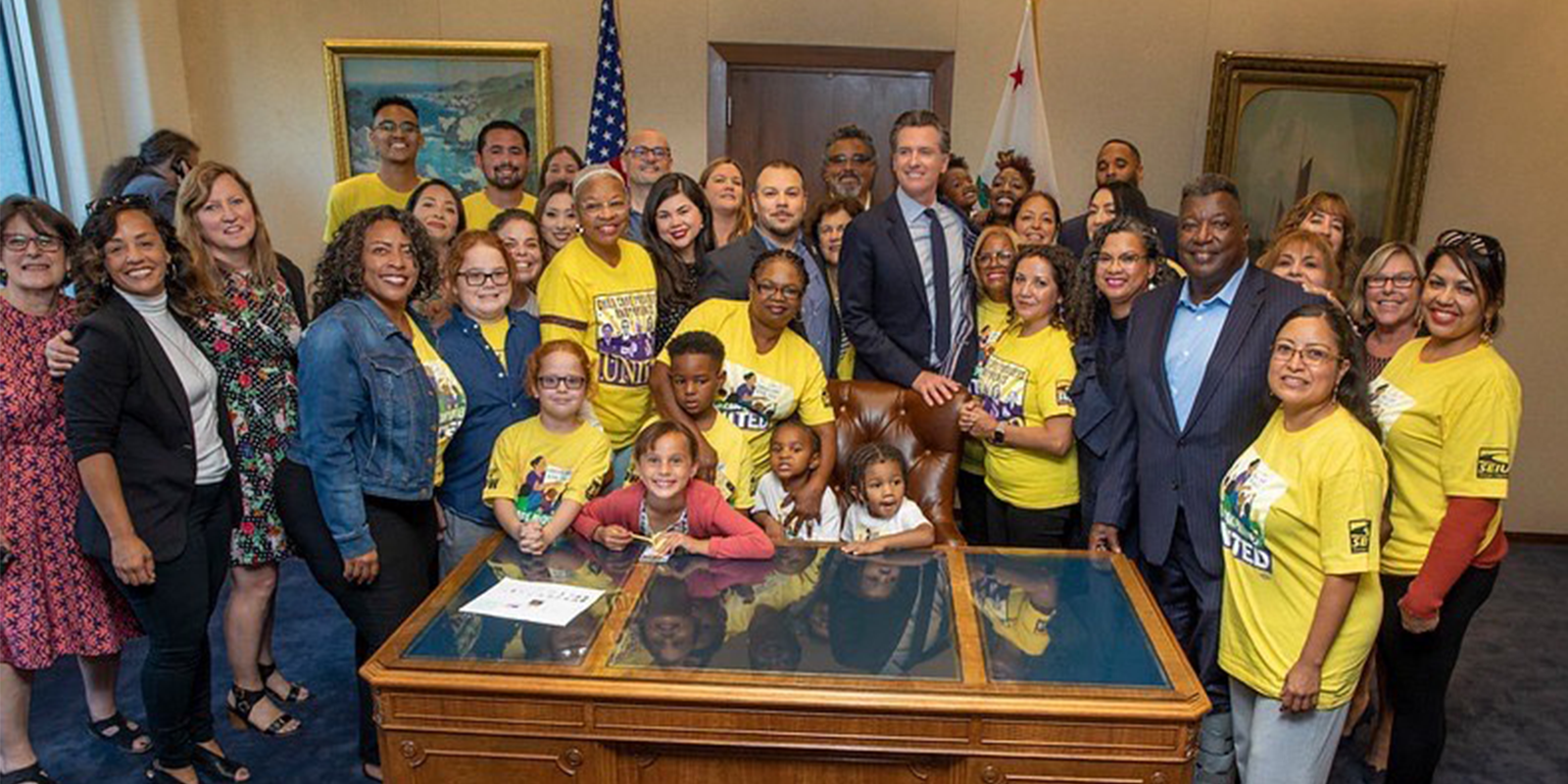More than 40,000 family child care providers and parents in California are celebrating today after winning respect and a stronger voice on the job because Gov. Gavin Newsom signed an historic bill on Monday granting them the right to collectively bargain and organize.
AB 378, The Building a Better Early Care and Education System Act, will lower the cost of care for parents and give California-based family child care providers – many of whom are women of color and immigrants – the right to come together to negotiate for living wages, benefits and the ongoing training they need to provide quality care.
There are 40,000 family child care providers who care for kids who receive subsidized child care in California. The median wage for these providers is $12 an hour, but some licensed providers earn as little as $5 an hour. Fifty-eight percent rely on government assistance programs to support their families. Family child care providers do the critically important work of taking care of and educating young children, but their value was never recognized by our laws.
AFSCME President Lee Saunders said California’s family child care providers can now join together in unions to advocate for the children and families they serve and to fight for better working conditions for themselves.
“With their collective voice, providers will be able to win better wages, training, resources and increase access to quality child care for all so that every child has a better chance at success, no matter where they come from,” Saunders said in a statement.
“This historic win represents the largest organizing campaign in the country, which is experiencing a dynamic surge of union activism and mobilization, with growing numbers of people demanding that we unrig an economy that favors the wealthy and well-connected,” Saunders added. “Americans want unions, and we will keep fighting until everyone has the freedom to join one.”
Carolyn Carpenter, an Oakland-based family child care provider, called it a “truly historic day” for workers like her. Carpenter is a member of Child Care Providers United (CCPU), a coalition of family child care providers across California who are members of UDW/AFSCME Local 3930, Service Employees International Union (SEIU) Local 99, and SEIU Local 521.
“This means we will have the power to fundamentally change what it’s like to work in early childhood education in California. Every worker should have the opportunity to form a union, no matter what work they do,” Carpenter said.
Pat Alexander, a family care provider in Elk Grove and a member of CCPU, echoed those sentiments.
“Together, we can fix our fragmented child care system that has kept our wages low and the price of child care high for working families,” she said.
With the signing of AB 378, California becomes the 12th state to recognize collective bargaining for family child care providers and ends a decade-long fight to overturn a discriminatory law that prevents family child care providers from organizing.
